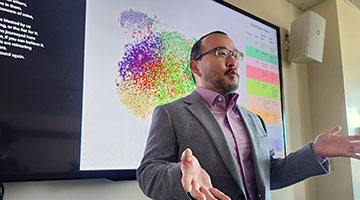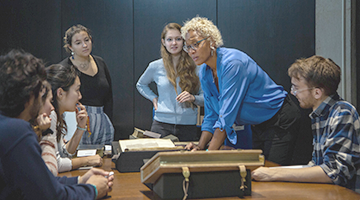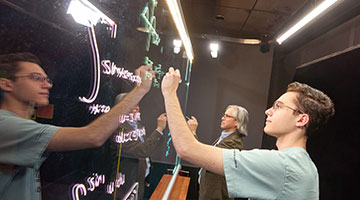As we have developed our vision, we have determined discrete projects for FY 24 to align with the University's vision and mission:
- Grow our library-centered digital scholarship model by expanding our implementation of machine learning and data visualization, transforming digital collections into computational platforms.
- Accelerate our holding reclamation project with OCLC to ensure the most up-to-date representation of Northwestern's collections for discoverability as well as loanability.
- Replace the existing UBorrow platform with Resource Sharing for Groups, a new platform the BTAA is developing with OCLC and upgrade Northwestern's ILLiad instance to version 9.2.
- Align interlibrary lending policies regarding e-resources, special collections and digitization services with the BTAA Resource Access Policy to enhance collection access and use across the BTAA.
- Assess and evaluate course materials services, the OER Grant Program, and course reserve, and provide recommendations for improvement, as well as develop a communications strategy to improve visibility of the Libraries' course materials services.
- Pilot a website for e-books available through the Libraries for coursework.
- Develop a research data management service model that is scalable using technologies like machine learning and generative AI that both highlights the Libraries' expertise and reduces redundancies in services offered across campus.
- Identify the technologies and service model required for an innovative multimedia center in consultation with campus stakeholders.
- Conduct a needs assessment in the areas of digital literacy and computational/data-intensive research methods for student support and identify trainings for librarians to meet student needs.


